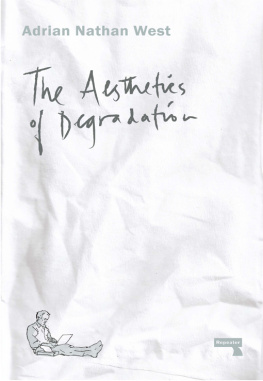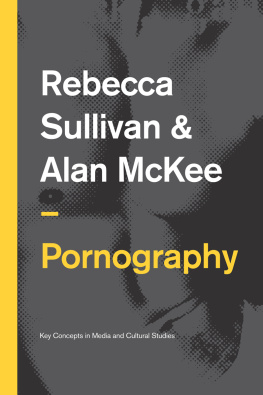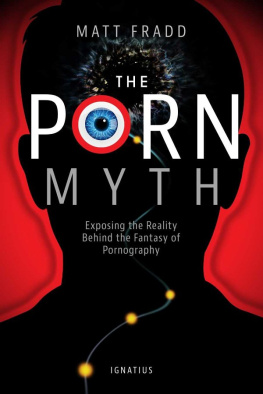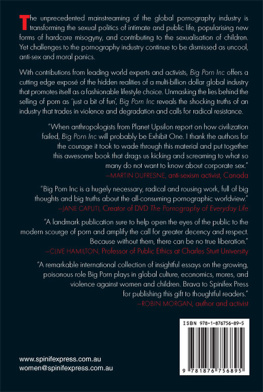The Aesthetics of Degradation
The Aesthetics of Degradation
Adrian Nathan West

For Beatriz, and for my family
I would like to be able to write a tragedy in thoughts.
Grillparzer
On his way home from a market around the corner from his apartment, where, in lieu of cooking for himself, he often goes on free afternoons to buy a sandwich that is a specialty there and a bottle of Gerolsteiner water, the narrator pauses to look at the display window of a video store, the TLA, where a placard advertises excess stock of DVDs for sale at cut-rate prices. He walks inside, examines and decides against the titles on offer, most of them Hollywood films from the foregoing season and maudlin documentaries, and begins browsing through the store, pausing at the new releases and especially the films from Austria and Germany, because he is considering learning the language of those countries. It feels like something less than a coincidence when, after five or seven minutes, he pushes open the spring-loaded saloon doors leading to the adult section, where rows of garishly lettered empty jewel cases are lined up on horizontal wooden rails affixed with hooks hung with aluminum-edged, round paper tags to be taken discreetly to the counter in exchange for the title of ones choice. The narrator is indifferent to pornography in the main: it is monotonous, most of the women look, or are made to look, the same, conforming to an ideal too bare of idiosyncrasy to be arousing, and the acting not as concerns any semblance of plot, which effectively vanished years back, despite its persistence as one of the most conspicuous clichs surrounding pornography in the public imagination the acting rather in the sense of the attempt to persuade the viewer that erotic and not merely mercantile motives have brought the bodies together onscreen, is ordinarily dismal. Like other industries subject to faddish revivals in recent years restaurants are another example pornography has attracted armies of parvenus with little talent, preparation, or sensibility, lacking in scruples and spurred by greed. But a new title by Rocco Siffredi, showing a black woman on the cover, makes him stop. On the back, a man is sodomizing her. His face is not visible in the photo, so the narrator cannot see whether it is Rocco Siffredi himself or a different person who is fucking her. (In an interview the narrator will read months later, the Italian director states: in a movie like Tarzan I have to do it with black women. I dont complain, for Tarzan lives in the jungle. If its necessary for the job, I will do it. But otherwise I wont.) The narrator asks himself why, although there are hundreds of films displayed in this room with titles like Ass Worship, Up Your Ass, and Anal Trainer, it is only the thought of anal sex with a black woman, and in the violent and obsessive manner for which this filmmaker is famous, that attracts him. Though he will never know the answer to this question, or to any question about the nature of his sexual desires, with certainty the term certainty being, so far as he can tell, a mere feeling independent of the fact of being in the right the origins of this enticement must lie, at least in part, in the long history of the enslavement of blacks in his country of origin and those that neighbor it; in the risible magnanimity he cannot help but feel for his refusal to renounce his attraction to black women, whom many of his race steer clear of, and in the air of the transgressive that accompanies this self-indulgence; in the peculiar conception of the life of blacks as partaking at once of object, animal, and human, which has sanctioned their oppression for hundreds of years; in their persistent relegation to the poorest fringe of society, which makes them seem somehow disposable or unworthy of the generosity and consideration that still impend, in part, upon our notion of sexual conduct in its ideal form; and in the extravagant fancies whites have held concerning the sexual lives of blacks since the earliest days of colonialism. Beside this film is another one, Kellys Lost Movie, starring Rocco Siffredis ex-girlfriend, Kelly Stafford, a blonde British woman with large breasts and irregular dentition. On the back of the box, amid photos of the actress being doubly and triply penetrated by groups of men of various races, or looking like the lobe of a daisy in the center of a circle of radiating dicks, is the melancholy phrase, There will never be another Kelly. She has died early, the narrator presumes, like many members of her profession, and he is downcast as he looks at the other boxes of films she appeared in, as if, by scrutinizing the lewd photos that appear there, he might arrive at some clearer sense of the weight of the words There will never be another Kelly and the nature of the person they refer to, who once was and who now no longer exists. How often it has been said, even if wrongly, that life only acquires its definitive form in death.
Irreversibility means, quite simply, the obligation to a single course and sense.
What is the definitive form of this womans life?, the narrator asks himself. And it is the desire to know whether there is such a thing as the definitive form of a persons life, and the extent to which an examination of such relics as recordings and photographs of that persons abuse may assist in the acquisition of such knowledge, that lies at the depths of these meditations. In one picture, she crouches inside a glass box a worker with a dolly wheels through a public square in Rome, where she will be loaded into the luggage area of a bus filled with men who will later ejaculate and piss on her, as the narrator will learn that evening when he has returned home and read an interview with her from a porn-industry gossip page. In another, she licks the hirsute asshole of a man on all fours with a lumberjacks bristly beard; Rocco Siffredi and a tall, thin man in a yellow cyclists jersey and cap pull apart her buttocks and those of another woman, revealing the pinkish orifices at their center; and she lies across the domed stomach of the recently deceased Italian dwarf Oliviere Migliore, who performed in sex shows for decades at Sala Bagdad in Barcelona under the perplexing sobriquet Holly One, and squeezes the tip of his bowed penis between her lips.
The narrator turns to leave. On his walk home, where he will learn that Kelly Stafford has not died, as he imagines, but only retired temporarily, and founded a talent agency to supply actresses to the directors of pornographic films, the narrator recalls an early chapter in a self-help book he came upon after a breakdown in his twenties, in which the author, hoping to inspire readers to leave off with their idle and deleterious pastimes and live by the dictates of their hearts, enjoins them to imagine their own funeral. He lists the various hypothetical attendees: immediate and extended family, friends and coworkers, acquaintances from charitable or religious associations. Think deeply, the author said, and imagine what you would like people from each of these groups to say about you on this occasion. The highlights of these imaginary funeral orations were to provide the grounding principles for the better life the reader would pursue when the book was finished.
Considering Kelly Staffords possible virtues, and what her funeral guests might say about her, the narrator opens his apartment door and walks inside, sits on his couch and rests his computer in his lap. He reads that she has not died, that her work remains popular in Europe, that she would like to return to acting, preferably on the internet, where there are fewer restrictions. He listens to her praise herself and a small coterie of fellow actresses with the words
Next page











